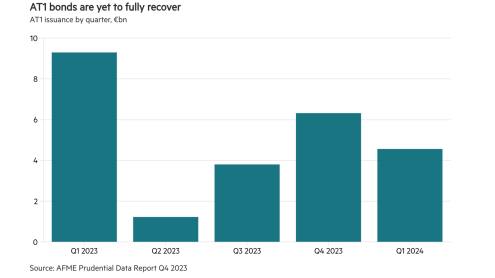As our government navigates the complexity of leaving the EU after 44 years, the harsh reality of the two-year timetable – which shrinks to just 18 months when allowing approximately six months for ratifying any deal – appears to have finally dawned on politicians. We are now being told that more time is needed to settle phase one – people, money and Ireland – so the phase two – negotiating the new relationship and deal – will be pushed back from October 2017 to the December.
That equates to 10 months to negotiate the UK’s future. How will it be possible to have any deal agreed in that time and voted on by the 27 member states? Leaving is in effect a reversion of the accession process which was long and complex.
Yet each day brings more fanciful thinking about what the UK can and cannot demand from the EU, the processes involved and how we deal with a cliff-edge no-deal scenario. The UK government’s disarray over what sort of Brexit it wants is not just down to incompetence, it is because it is trying to unpick the intricate tapestry of EU membership with a needle. This will result in half-baked thinking and plans based on naivety. For example, the Irish border paper issued by the government is pure fantasy, as both the EU and the Irish prime minister have stated.
Some politicians have called for a transition... sorry... implementation... sorry... interim period. But in my view, the only realistic request is for an extension of the two-year period. The other options would reasonably require the government knowing what it is seeking to transition to or implement. How can it know this when negotiations have hardly begun and when the government appears to have no detailed plans, and the time available is so desperately short?
A long way to go
The EU’s saying ‘nothing is agreed until everything is agreed’ seems a very long way off. The UK has not yet agreed the Brexit divorce bill, a realistic Irish border solution and on what to do about citizens’ rights: both those living in the UK and UK citizens living in the EU. All hugely contentious issues where the points of divergence between both sides appear more significant than the points of convergence at this stage. For example, on reciprocal rights for citizens, we are a long way from agreement on the scope of who these protections should apply to, and on who should enforce these rights (the EU wants final oversight to lie with the European Court of Justice; the UK with the British court system),
Many politicians and people in the City are talking about the UK transitioning to the European Economic Area (EEA) or the European Free Trade Area (EFTA). The EFTA option would require the agreement of the EU27 as well as the EFTA states – Iceland, Liechtenstein and Norway. But there appears to be resistance to this option: for example, Norway, which effectively runs this club, is not keen on the idea of the UK – a much bigger economy – walking in to upset the apple cart for just two or three years, reaping the benefits then leaving. Even if we secured agreement from all 30 countries, being part of the EEA requires accepting the four freedoms – the free movement of goods, services, persons and capital – throughout the EEA and EU. Then there is the money. We would be paying into the EU, albeit less than we pay as full EU members, but not be at the table; pay with no say. This is a considerably weaker position than we have at present.
Seeking an extension
In view of these challenges, the most logical and practical approach would appear to be to seek an extension of the two-year withdrawal period. This would allow our politicians time to ensure meticulous planning that would lead to damage limitation of the short- to medium-term negative consequences of Brexit. It would allow us to start on all the huge tasks that need to be completed before we leave. Establishing new institutions or broadening others which would require new legislation, the training of thousands of staff, and infrastructure for institutions such as the Border Agency and Her Majesty’s Customs, as well as control mechanisms for medicines, chemicals, aviation, nuclear imports and food regulation. New fisheries agreements must be put in place for shared stock management in North Sea and Atlantic waters, border arrangements between Northern Ireland and Ireland, World Trade Organisation tariff schedules and quotas would need to be negotiated with 163 countries and new trade measures must replace EU measures protecting UK industry. Not to mention the tens of thousands of laws that would have to be repatriated.
Then there is the money to implement all these requirements – where will it come from? Unless politicians have discovered a magic money tree.
Considering the enormity of the tasks ahead, asking for an extension of the two-year withdrawal process appears to be the only responsible action for this government to take. The longer the uncertainty of a looming cliff-edge persists, the more UK based businesses will have to plan to move parts of their UK operations to mainland Europe. As Bank of England governor Mark Carney recently said: “It’s evident in our discussions across the country... that uncertainties about the eventual relationship are weighing on the decisions of some businesses. We all need some level of certainty and confidence that the politicians are not making things up as they go along.”
City concerns
For the City of London, leaving with no deal would mean a third-country regime. At first glance this does not seem such a big deal as Markets in Financial Investments Regulation (MiFIR) Article 46 looks like a potential saving provision for the current passporting rights of UK firms. But my opinion, having heard opinions in Brussels and in the UK, is that this is not really the case and things become very complicated and uncertain for the following reasons:
(i) The cross-border regime under Article 46 of MiFIR, which enables a non-EU firm to provide its investment services and activities throughout the whole EU, without the requirement to set up a branch or a subsidiary, or even to be under supervision of the local national competent authority only relates, to wholesale business, so only to firms that provide services to eligible counterparties and professional clients.
(ii) In order to benefit from this regime the European Commission has to rule on the UK’s equivalence. This may not be a huge issue immediately after leaving as we would have implemented the Markets in Financial Instruments Directive II (MiFID II), MiFIR and the Packaged Retail Investment Products regulation by the withdrawal date. But they will begin to lapse over time. We have also seen that equivalence procedures take time, as has happened in Switzerland. In addition, equivalence was not actually formulated with financial services in mind.
(iii) Any firm that wants to benefit from this regime will also have to be registered with the European Securities and Markets Authority (ESMA). This sounds simple, but ESMA – which has about 140 staff, compared with the Financial Conduct Authority, which has 4000-plus staff, is currently not equipped for this job. It simply does not have the resources, capacity or expertise to handle the scale of registrations.
If a firm wants to service retail clients and elective professionals as an investment firm, it would be bound by another regime under MiFID II Article 39. Companies faced with no passporting rights would probably need to establish a branch in the EU country where they could then service non-professional clients.
This branch requirement is, however, subject to EU member states’ discretion. Some EU member states may require a UK firm to establish a subsidiary that will need to be licensed and supervised by the regulator within a particular EU member state. In short, each EU member state has discretion as to how to treat firms servicing non-professional clients. There would not be one rule book.
For a credit institution that provides banking services next to its MiFID services, what is such a bank to do? Is MiFIR then providing an overall solution? Would they be required to set up subsidiaries in the EU in order to continue business as usual with EU client?
A huge mess
In short, it appears to be an almighty mess. I am already hearing that people are quitting firms doing due diligence or refusing to work for UK companies looking to set up a subsidiary as it is all too much of a minefield.
Whatever the sector, the UK government only appears to have scratched the surface and many voices are saying it is so complex that few people in the civil service or government appear to know even where to start. All firms in the financial services sector should be far more vocal in raising their concerns for what this would mean for them, the sector and the UK economy.
As Lord Mountbatten said when the separation of India and Pakistan was being negotiated: “I fear there will be no victors here.” There are many examples from history where people have perished when politicians posture and rush to enhance their own power base without thinking of the long-term consequences. Brexit appears to be emerging as yet another one of these examples, unless an extension is asked for as soon as possible.
Gina Miller is a founding partner of investment management firm SCM Direct. Her legal challenge to the UK government led to a ruling in the Supreme Court and forced prime minister Theresa May to seek parliamentary approval before triggering the official process to remove the UK from the EU.












